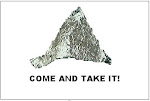In the book "The Body Keeps the Score" things like "mirror neurons" and other neurological systems are explained as to how we can experience empathy for others, and how this can help us to gain a feeling of safety and belonging within a group. People who lack the ability or whose development of these abilities was stunted by trauma experience anxiety, depression, and other negative manifestations in their lives.
Music, dancing, sports, and other activities that involve a synchronization of rhythm between individuals have shown to help people overcome these negative things and even relearn how to relate and feel safe around others. Many cultures have drum ceremonies, ritual dances, chants, and other collective activities and encourage a communal synchronicity as a part of normal life. It turns out that these activities also create a sense of safety and well being within the individuals that participate in them as they synchronize with each other. It's interesting to me that many of these rituals and traditions often are used to memorialize significant and sometime traumatic events within the community. They are used not only to remember the event, but also to heal from it.
I think this collective synchronization is missing or has been corrupted in the white middle class culture that is predominate especially in "Red State" Evangelical America. The caricature of the "Karen" culture, and its male F150 driving counterpart are what I'm talking about. There is a hyper individualistic focus in this culture that can be seen in everything from politics, religion, and even sports and music. The communal component of these activities is often minimalized in preference to a focus on the individual.
There are sports and music but even in these paradigms, the individual performance seems to be focused on to the exclusion of the collective experience. A simple demonstration of this is the lack of dancing. In fact in one of the largest Christian denominations in the US, dancing has long been held as something forbidden!
In our Politics it is an obsession with "individual rights", which are of course a cornerstone of western civilization as well as the source of many advancements in our ability to lift humanity out of oppression and misery. However, taken too far and the concept of community quickly gets drown out. When we make individual rights the premise of all philosophy, we gain a great deal of insight, however we also lose the concept of community in the process.
Our social interactions, especially in the disconnected times of this pandemic, but it certainly didn't start there, are very disconnected. Things like playing music together, singing together, dancing, and other forms of collective synchronicity are becoming less and less common. Even our worship traditions are catering more and more to delivery a message that can be applied individually.
There is a place in our lives for the corporate, the communal, and these things are realized through activities like dance, music, and other ritual and traditional activities that bring us together to harmonize.
